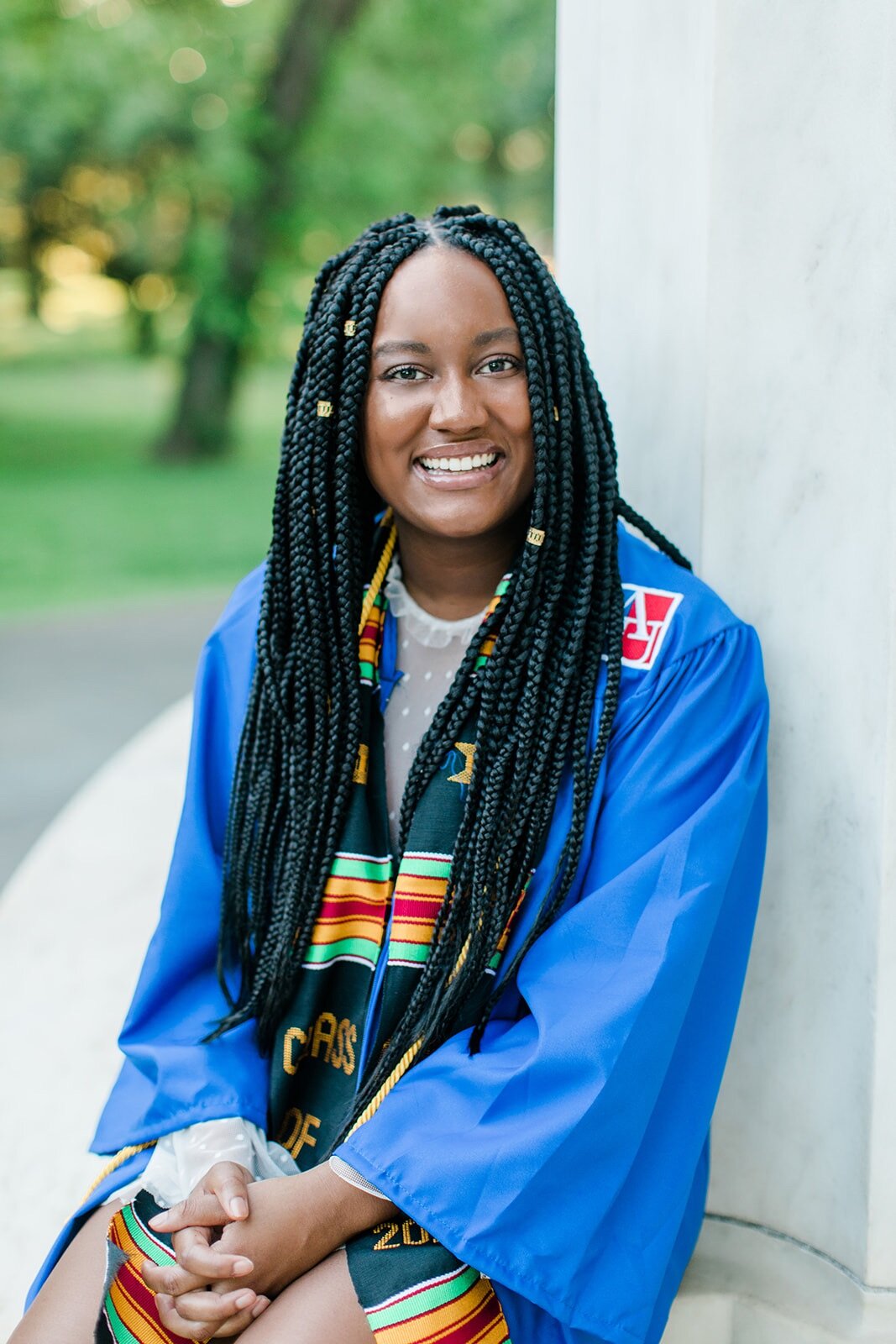Mia Van Allen - Founder, Color of Music Collective
Last May, in the midst of a global pandemic, Mia Van Allen launched Color of Music Collective after struggling with feelings of imposter syndrome and finding it difficult to continue her pursuit of music industry. In many of the experiences Mia had leading up to her graduation from American University, representation of Black people and people of color were scarce — especially in comparison to the ethnically diverse up-bringing she had growing up in Chicago.
The pandemic created uniquely challenging circumstances for many people who were completing college and looking for post graduation opportunities. After completing several internships and attending a variety of music and entertainment conferences ahead of her senior year at American, once the pandemic hit, Mia suddenly saw that her previous job offers were put on hold for an indefinite amount of time.
Color of Music Collective
Starting off with a panel as a way to test the waters, the response from the first panel was overwhelmingly positive and that encouraged her to continue creating panels and other opportunities for people of color and LGBTQ+ identifying professionals early in their careers within the music industry. Although cautious about starting something new not only in the midst of a global pandemic, but also during an increased awareness and collective consciousness around the movement for Black lives, Mia and her team continued to forge ahead with their goal and mission in mind. The music industry has long been critiqued for its lack of representation among people of color and LGBTQ+ individuals. The mission of Color of Music Collective is to encourage up-and-coming professionals in the music industry and “to expand the public discussion and promotion of underrepresented communities within the music industry.” In doing so the Color of Music Collective’s goal is to”change the lack of representation for those groups in music by uniting our communities” across all facets of the music industry.
Eight panels in, Mia began to see the mission of the organization continue to take shape and began to wonder if there were additional, more impactful ways to further its mission. This ultimately gave birth to a blog which created space for writers to express whatever thoughts came to mind as it pertained to diversity, equity and inclusion within the music industry, and upon hiring of additional staff, saw the beginnings of a mentorship program. Mia and her team have since connected with a number of previous panelists to see if they would be comfortable with forming more of a personal relationship with individuals who were looking to be mentored as they navigated the often nebulous waters of a burgeoning career in the music industry.
Color of Music Collective has also launched a Masterclass series that highlights industry professionals with 8+ years of experience. The goal of the Masterclass series is to allow attendees to take a deeper dive into various processes involved with putting together an album release campaign, recording an album, breaking an artist, and topics around equity and inclusion.
What Mia Is Listening To Right Now
Mia was raised on a lot of 80s rock music, and notes that she currently has Elton John, Van Halen and Melissa Ethridge in rotation. In addition to those legendary performers, she also has the music of Kehlani, Mahalia, Montay Booker, NoName, and Ella Mae in rotation as well.
When Live Comes Back
Like so many of us, Mia is very much looking forward to the return of live music post pandemic. When the pandemic shuttered the doors of live music venues around the world, Mia sadly had to put plans to see Bob Dylan on hold — she had tickets to what will likely be his last tour.
Mia admits to being more of a festival person than a one of concert person and named Austin City Limits (ACL), Lollapalooza (which is in her native Chicago), and the Brighton Festival in the UK among the multi-day line up.
““I feel like there’s a long way to go. The start of Blackout Tuesday was really great, but it got drowned out.””
On The Future of Black Women In Music….
On the future of Black women in music, Mia noted that Blackout Tuesday was a great start, but there is still a long way to go. In response to the murders of George Floyd, Breonna Taylor, Ahmaud Arbrey, and countless other Black people at the hands of the police, The Show Must Be Paused created Blackout Tuesday as a way to intentionally disrupt “business as usual” within the music industry. However, Mia noted that the message behind the days intent quickly got drowned out by the posting of black squares across social media, and what felt like empty promises and vague, corporate statements. To Mia it felt like people weren’t really learning or putting into action the things that they were reading. Real change will have to go beyond large donations that lack the transparency and action to back them up. Instead, companies need to focus on building out and further supporting the diversity and inclusion networks within them, and also asking “how is this money being spent?” One of the ways that funds can be spent is in support of housing for interns and as needed, helping budding professionals relocate — especially in many of the cities that are large hubs for the music industry such as Los Angeles, New York and Nashville— all of which tend to come with a higher cost of living when compared to many other cities in the U.S.






